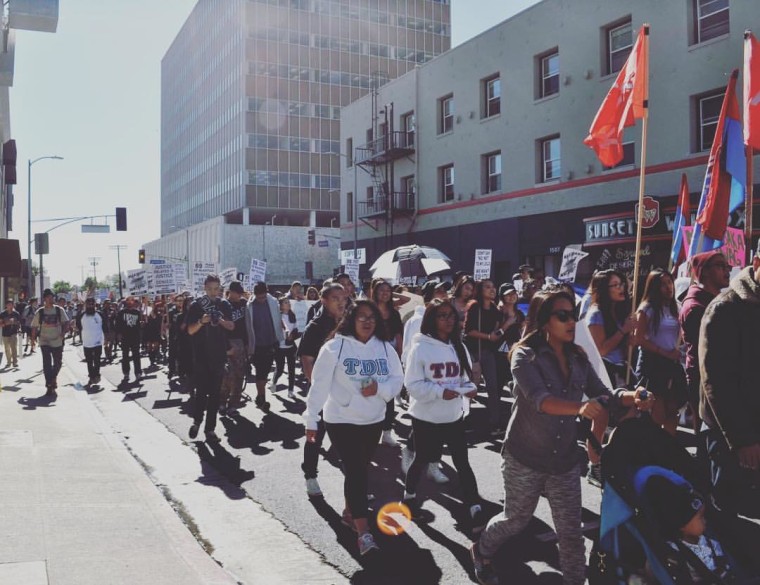Seventy years ago, Filipino veterans of the U.S. military had their compensation for serving during World War II revoked by the Rescission Act of 1946. While some concessions have been made by the government since then, several hundred people are expected to march in Hollywood today to rally for full restoration of compensation for the veterans affected.
Organized by Justice for Filipino American Veterans (JFAV) — a national alliance of Filipino veterans organizations and other advocates — the march is meant to serve as a reminder to ensure the sacrifices made by Filipinos during World War II aren't forgotten.
“We want to keep the torch alive,” Arturo Garcia, JFAV national coordinator, told NBC News. “That’s why we bring the march to Hollywood, so some people will learn about it.”
RELATED: Forgotten: The Battle Thousands of WWII Veterans Are Still Fighting
During World War II, more than 250,000 Filipinos were enlisted into the U.S. military and promised health and pension benefits identical to that of other American soldiers. However, the Rescission Act of 1946 voided the veterans of their benefits.
Garcia said JFAV has been lobbying for restoring the benefits for the last 25 years. Friday marks the 16th march JFAV has held. JFAV's marches have had anywhere between 600 to 800 participants, Garcia said, and this year's is expected to include many students.
Since JFAV began advocating for Filipino-American veterans, they have received incremental benefits, Garcia said, among which include an option to be buried at a national cemetery, receiving military honors, and getting treatment at Department of Veteran Affairs medical facilities.
“Do you mean our service only cost $15,000? It’s an insult to the Filipino community. If there is no rally every year, people will have forgotten about it."
In 2009, the veterans also received a lump sum payment — $9,000 for soldiers living in the Philippines and $15,000 for those in the United States.
But Garcia called those benefits a “band aid” fix that is not enough, noting that less than half of the 41,000 claims for the payments were paid out, with many rejections owing to old, inaccurate record keeping. He added that of all the countries that allied with the United States during the war, only Filipino veterans did not receive benefits.
“Do you mean our service only cost $15,000? It’s an insult to the Filipino community," he said. "If there is no rally every year, people will have forgotten about it."
RELATED: Congressional Gold Medal Proposal for Filipino Vets Passes Senate, Heads to House
Garcia said that JFAV is seeking $800 million per year for the remaining veterans — which he estimates are fewer than 18,000 — and their widows.
While advocates continue to fight for Filipino-American veterans, they await the fate of another measure that would recognize the service of Filipino veterans with a Congressional Gold Medal. The bill, the Filipino Veterans of World War II Congressional Gold Medal Act of 2015, was approved by the Senate in July and now rests in the hands of the House.
Follow NBC Asian America on Facebook, Twitter, Instagram, and Tumblr.
